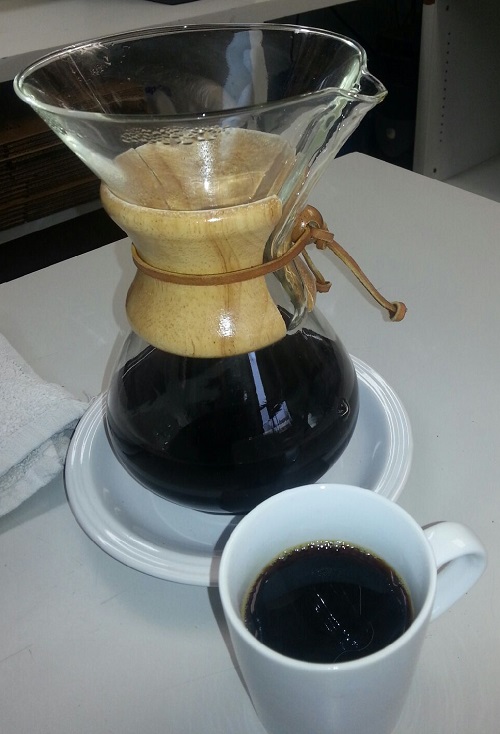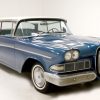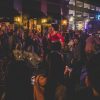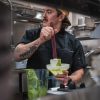When you’re sipping your delicious morning “wakey juice” do you ever wonder how it got there? I met with Don Palazzo, who owns Clayton’s Coffee Roastery, to ask him all about it.
All coffee is grown near the equator (in places like Brazil, Indonesia, Guatemala, Ethiopia, and Hawaii), and shipped everywhere else in the world. (Switzerland and Germany are the only countries that create decaf coffee, but that is another article altogether!)
Did you know coffee is actually fruit? It grows year round, so it needs to be harvested by hand when the individual fruits are ripe. Once plucked, they are taken to have the fruit removed, which tastes similar to a cranberry. Then the membrane that surrounds the bean is removed, leaving the green, raw beans to be bagged and shipped off to a roaster. That’s where Clayton’s comes in. Don roasts in a very traditional way. His grandmother, Virginia Palazzo, left Italy to work on a coffee plantation in Brazil. When she returned to Italy later she brought roasting and brewing methods back with her, and bestowed her passion on Don. He uses an oven, and pours the beans into the drum, where they are heated to around 440 degrees. The first step of the process is called Endothermic. During that phase the bean is soaking up heat. The water and oil inside the bean steams the bean, and it puffs up a little bit like a puff pastry. Then the beans start to make noises that sound like a bowl of rice krispies, and that is the sound of the dried membranes popping off. Then phase two starts, which is called Exothermic. At that point, the sugars in the bean start to caramelize and the oils begin to seep out, and it smells like baking bread. Depending on how long the beans are in Exothermic gives you the degree of roast you want. The darker the bean, the less sugar and oils are in it. Lastly, the beans need to cool.
Though roasting is not rocket science, it does engage all 5 senses. Unless you want to hone your skills and make a deep connection with your beans, it’s best to leave roasting to the experts. Beans from Africa are going to taste more floral, and beans from Hawaii and Ethiopia are going to have heavier hints of cocoa. Arabica beans are rare, since they can only be grown in the highest altitudes where the air is densely moist. Nothing smells (or tastes!) better than freshly roasted coffee beans. Don, a Beatles fan, can make you any special roast you need for your mug, so please stop by and tell him what your favorite roast is. Coffee isn’t just about a jolt to get you going, it’s a precious accessory in making memories with loved ones, fuels you in your travels and it silently supports you while you study or plan the next chapter in your life. Sip on, friends.
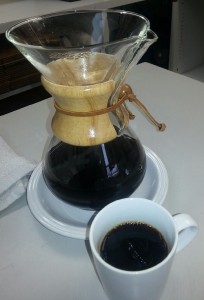
Clayton’s Coffee and Tea
502 Tenth Street, Modesto
209.576.1120
claytoncoffee.com


